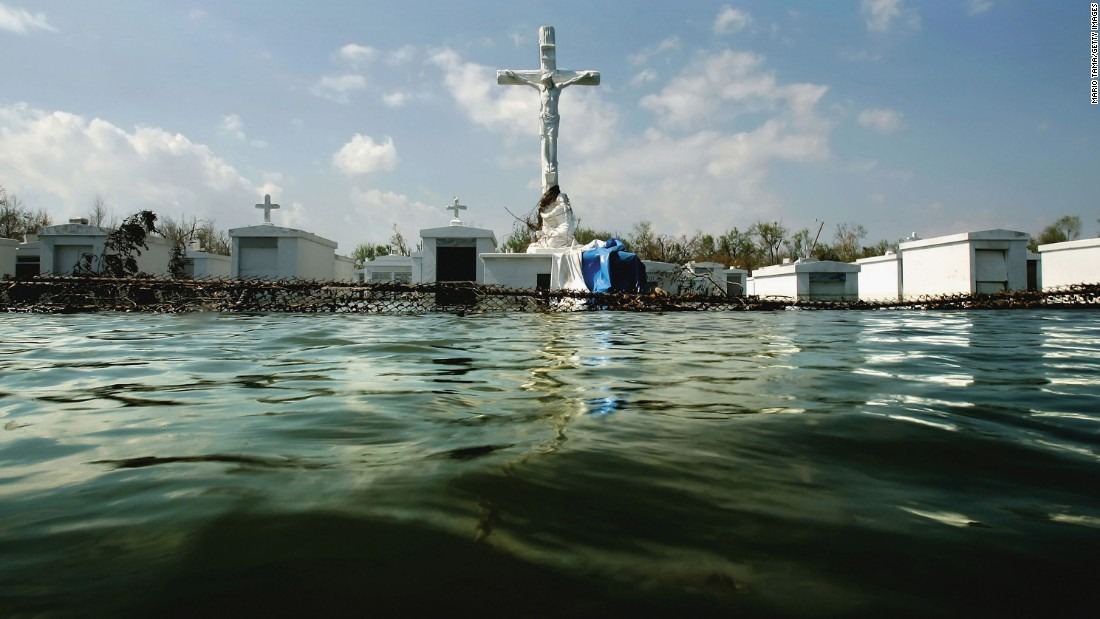
10 years later: How Katrina changed my life
A few months before Hurricane Katrina flattened the home I grew up in, I dreamt that my bedroom was filling with water.
Even after the storm swept through and pushed its waters through our trembling levees, I didn’t think about this dream often. It’s only now, 10 years after that storm left New Orleans a husk, that I can think about it without a swell of emotion that chokes me. Sometimes it seems that something within me sensed what was on the way, like a farmer standing in the field before the storm and smelling it in the air.
I lived in Chalmette, a suburb about 20 minutes south of New Orleans, until I was 27 years old. Our home was on a short two-block street called Marais Street, which was lined with huge oak trees well into their hundreds. I used to pick magnolias across the street from our neighbor’s tree, a blooming beauty which was three times the height of our house.
Only a month before Katrina spawned in the Gulf of Mexico, I had moved out of my parents’ home and into an apartment in uptown New Orleans with roommates. On August 28, my boyfriend came home from work and called a house meeting. He had seen the weather reports about Katrina and he thought we ought to leave that night and drive overnight to evacuate to Houston, Texas, where friends were waiting with their doors open to house us. We were afraid, too. So we went.
I didn’t take the hurricane seriously. New Orleanians are hard partiers, and I was no exception. When we got word at work that we would be closing for a few days to wait out the storm, my staff and I cheered, and we all hugged each other goodbye and encouraged everyone to make the most of their “hurricane staycation.” Even the drive to Houston, drifting in and out of consciousness in the backseat of a car while a friend manned the wheel and strains of Arcade Fire pulsed out of the CD player, seemed like somewhat of an adventure.
A few days later, the adventure was over. We took a deep breath as Katrina hit the city, and exhaled slowly as it looked like we just might be OK in this one. And then, she broke the levees. The little green house with the blue porch where I learned to walk was swallowed in water, to be gutted and bulldozed years down the line. My apartment uptown with my roommates didn’t get obliterated, but we did get enough water to damage our belongings to the point where almost nothing could be salvaged except the frame of the house itself, which stands proudly remodeled today.
I didn’t go back to New Orleans at all. I was terrified to face what had happened to my life. Instead, I started my first journey to another state, settling in Los Angeles with my roommates and rebuilding our lives bit by bit with relief money from FEMA. My parents, who ended up trapped downtown in the Intercontinental Hotel and had to be airlifted out after the storm had passed, also did not go back for a while. New Orleans was shut down until authorities could make sure it was safe enough to re-enter. Not long after, my mother told me what their experience was like on the phone. The power had gone out for days and she had shared a tiny room with my aunt and grandmother, both panicked and crying.
“When the winds blew, we felt the hotel shifting from side to side,” she told me. “I wondered if we could withstand it.”
We did withstand it. So many New Orleanians were heartbroken, catatonic with pain, the things we had loved torn from us. I stayed in Los Angeles for years, afraid to go home and face what was left. I got a new job, made new friends. When I finally went back in 2008 for the first time, and my parents drove me out to where the old house stood, all that was there was an empty lot of gravel, all that was left after the carcass of the house had been bulldozed. I waited years but it still hurt badly, to stand there. The home I grew up in was far from perfect, but it was the only one I had, and I had no way to ever go back to it.
Most people could never think anything positive came of Katrina or see any good in her, and I can’t blame them. The storm was a tragedy. However, her forcing me out led me to a life that I had no choice but to craft all over again from scratch. I became someone tougher in the best sense of the word, more grateful, more desirous to live in the moment and honor each treasured breath.
I go home to see my parents every year now. In place of the old crumbly house, which my 93-year-old grandmother likes to say only cost her $7,000 when she bought it in 1952, is a brand new two-story home with all the luxuries we couldn’t afford when I was growing up. Cats come and lounge on their big front porch, dangling their paws through the white picket railing.
My grandmother never spent the money FEMA provided for her after the storm to rebuild, and it sat neatly in her account for years. When they discovered that, they offered her a bit more as incentive, and what she got out of it was a beautiful new home in the same spot where the old one once stood.
“How are you, Maw Maw?” I always say to her when I come in the front door, happy to see her there in her expansive living room, in want of nothing.
“I’m just fine,” she says. “Just fine.”
Post a comment